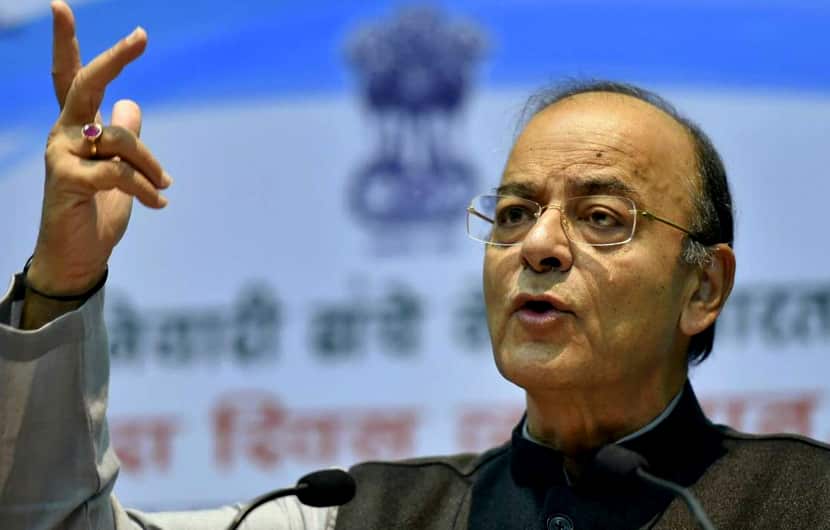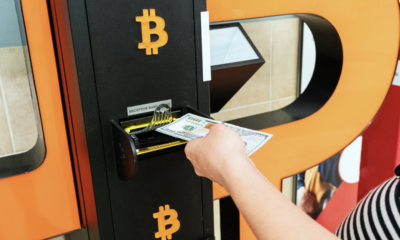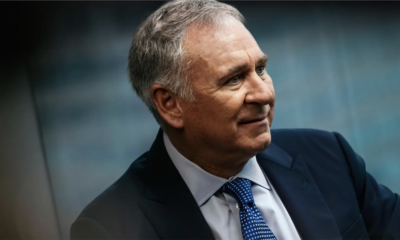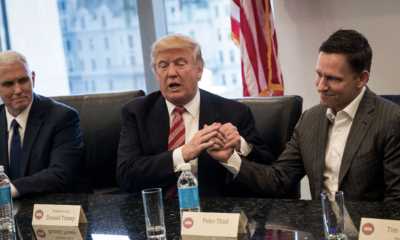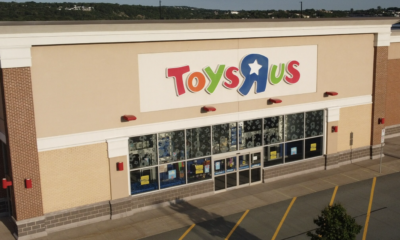News
What did Arun Jaitley say about AI, IoT, Blockchain Technology and Cryptocurrency in his Union Budget speech?
While the proposals seem heartening for now, a large part of its success in implementation will depend on the involvement of the private sector.
In a union budget speech that was otherwise focused on agriculture, public health and education, one would have hardly expected the mention of artificial intelligence (AI), machine learning, blockchain technology, internet of things (IoT) and cryptocurrencies. These terms were mostly jargons that received very little mention in previous union budget announcements but could be seen as the Modi-led government’s reinforcement of a digital India.
In his budget speech, Finance Minister Arun Jaitley had etched out an elaborate plan to include AI and machine learning every corner of the country’s future – from education to highways.
Jaitley, in his speech said, “Global economy is transforming into a digital economy thanks to development of cutting edge technologies in digital space, machine learning, artificial intelligence, internet of things, 3D printing and the like. Initiatives such as Digital India, StartUp India, Make in India would help India establish itself as a knowledge anddigital society. NITI Aayog will initiate a national program to direct our efforts in the area of artificial intelligence, including research and development of its applications.”
The FM went on to say that physical and cyber systems have the potential to not only enhance the ecosystem of innovation but also of the country’s economy. However, he did point out that that Government does not consider cryptocurrencies as legal tender and will take steps to remove its involvement in illegitimate activities. As part of his announcement he said, “Cryptocurrency investors in India have to bear in mind that the government doesn’t consider them legal tender.” But it is still an unclear issue as nothing was declared for or against investing in it.
Manav Jeet, Managing Director and CEO of Rubique says, “We are yet to match the security measures implemented in developed countries, hence the decision to eliminate the use of cryptocurrencies and encourage the use if blockchain in payments sector is definitely a wise decision by the government. Although several banks have started adopting blockchain technology within their existing infrastructure, it will be note-worthy to see how this tech implementation is going to shape up the financial inclusion of the country.”
While the proposals seem heartening for now, a large part of its success in implementation will depend on the involvement of the private sector. Padmaja Ruparel, Co-Founder and President, Indian Angel Network (IAN) said, “Focus on AI and blockchain promises to make India go not only digital but further deep tech. The macro direction is very encouraging we look forward to the fine print.”
The government is now looking to increase investments in research, training and skilling in robotics, AI IoT, digital manufacturing, big data analysis and quantum communication. A Mission on Cyber Physical Systems will also be launched by the Department of Science and Technology in order to lend support in setting up centres of excellence.
Education is poised to get a big digital push as it seems to be one of the primary agendas of the government for this year. “Technology will be the biggest driver in improving the quality of education. We propose to increase the digital intensity in education and move gradually from ‘‘blackboard’’ to ‘‘digitalboard’’. Technology will also be used to upgrade the skills of teachers through the recently launched digital portal ‘DIKSHA’,” Jaitley added.
Further unfolding the digital payments sector, e-tolling on highways will be given major focus. The government will be looking to add more toll plazas in order to improve digital payments on highways. Jaitley pointed it out saying, “The system of toll payments physically by cash at road toll plazas is being fast replaced with Fastags and other electronic payment systems to make road travel seamless. Number of Fastags has gone up from about 60,000 in December 2016 to more than 10 lakh now. From December 2017 all class ‘‘M’’ and ‘‘N’’ vehicles are being sold only with the Fastags. The Government will come out with a policy to introduce toll system on ‘pay as you use’ basis.”
Adhil Shetty CEO and Co-founder BankBazaar, the company who has been working towards the transition to digitisation since its inception back in 2008, said, “The budget overall is positive. There is visible support for Fintech industry as the FM specifically mentioned that Fintech is playing an important role in countries growth and hence announced setting up a working group for its growth.” However, he further added, “There are couple of points which will raise questions. The 3.5% fiscal deficit in FY18 and 3.3% fiscal deficit target in FY19 is slightly higher than expected which will impact the borrowing cost for Private sector. Second, introduction of tax on LTCG exceeding Rs. 1Lac after 14 years.”


